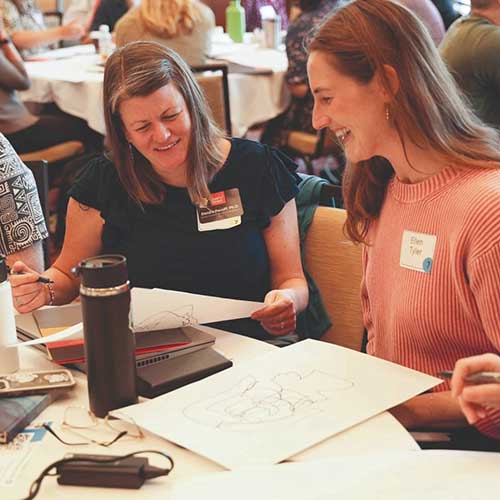The Great Lakes contain 95% of all the fresh surface water in the United States, and Wisconsin is fortunate that two of those lakes make up its northern and eastern borders—1,000 miles in all and supporting 105 Great Lakes communities.
Stewardship of the lakes is critical not just for those 105 communities, but for the entire state, which benefits from lakes Michigan and Superior culturally, recreationally and economically. Tuesday, Wisconsin Sea Grant announced 12 new two-year research projects worth $2.8 million that build Great Lakes understanding, leading to science-based management and policy decisions.
“We often say the Great Lakes are a gift from the glaciers,” said Sea Grant Director Jim Hurley. “This gift is a valuable one—a recent study found 1.3 million jobs are tied to the lakes, with $82 billion in annual wages. Just as the lakes fuel our economy, they also enrich our quality of life. That’s why we are pleased that these projects officially kick off today with funding from the National Oceanic and Atmospheric Administration.”
Research will be conducted on four University of Wisconsin System campuses and will, for example, deepen our understanding of per- and polyfluoroalkyl substances, harmful algal blooms and marine debris, three timely water-quality concerns.
In all, nearly 75 researchers, staff and students will be engaged in this work on the University of Wisconsin System campuses of Madison, Milwaukee, Platteville and Stevens Point. Additionally, the maritime archaeology program at the Wisconsin Historical Society will be supported for Lake Michigan shipwreck exploration.

Water samples laden with PFAS in the Christy Remucal lab at UW-Madison. Photo: Bonnie Willison
“This year, Wisconsin Sea Grant is celebrating its 50-year anniversary. We have a long history of supporting not just research, but the up-and-coming researchers across the state who want to meet Great Lakes challenges and opportunities. More than half of the projects announced Tuesday will be led by investigators who are first-time Sea Grant funding recipients,” Hurley said.





